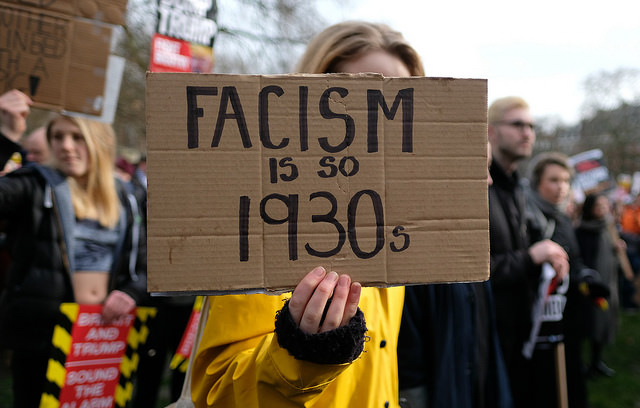For the first time in my life time, there is a real choice at the ballot box. You can either vote for the destruction of public services, the death of the welfare state and the immiseration of the working class, or you can vote to put a stop to all of this. The right stands for misery and oppression. The left stands for hope and emancipation.
The choice between Theresa May and Jeremy Corbyn couldn’t be starker. May wants to establish a super-majority to allow her government free rein to destroy everything good about this country.
Corbyn stands for the renewal of social democracy. Not instantaneous socialism, but the return to regulation, stability and security for most of the population.
Wages have been falling for a decade and the job market is increasingly precarious, saturated with cheap labour from the ranks of the unemployed. Historically weak, the trade unions are mostly powerless to defend the welfare state from the vicious attacks on it. The Labour manifesto presents the alternative to this state of affairs.
This is why so many people wept tears of joy when Jeremy Corbyn won the Labour leadership election in 2015. Meanwhile, others cried because they thought Labour was doomed by the left. Those people have spent almost two years trying to undermine the Labour leadership and reconsolidate the centre ground. They have failed. Corbyn and his supporters are holding their own.
Of course, that’s not to say the party isn’t terribly divided and weakened by infighting. Not only is the shadow cabinet split, the party is wracked by divisions between the MPs, the members and even the voters. Labour is a broad church, and that’s a part of the problem. This is why Corbyn has had to adopt a centrist style of leadership to manage this unwieldy coalition.
The Labour right has set out to wreck this approach by leaking to the media, attacking the leader in public and voting with the government. They launched the coup d’état last summer, just as the Tories were weak. Perhaps the Blairites are happy to see May win this election because the New Labour project can only be reinvigorated after a long period of Conservative rule.
In any case, the best efforts of the anti-Corbyn faction have served to entrench the Labour leadership. For instance, the manifesto was leaked last week to undermine Corbyn and the left. Much like how John Golding rubberstamped Michael Foot’s manifesto to pin the blame for Labour’s defeat on the left. Well, this time it won’t work.
Miles ahead of the 1983 manifesto, Corbyn’s plans are practical and very much within the confines of social democracy. The plan to raise taxes on corporations, capital gains and fat cat salaries is perfectly within the realm of the possible. This is the absurdity of people claiming Corbyn’s politics are “unrealistic”. It’s precisely the idea that this state of affairs can go on indefinitely that is unrealistic.

If anything, the leak has achieved greater publicity for left-wing ideas. Believe it or not, the platform to tax the rich and expand spending on the NHS is not poison. Neither is the demand for the renationalisation when it comes to energy companies, the post office and the railways. These policies are supported by a majority of the public.
And yet many people cannot imagine Jeremy Corbyn in Number 10. Apparently, the public finds it easier to imagine Theresa May as prime minister (probably because she is the PM already). What does this tell us? I suspect the majority do support Corbyn’s policies, but just as many people have no hope of ever seeing such things come to pass. This isn’t unsurprising.
Over forty years, Conservative and Labour governments have largely implemented the same policies. It’s become commonplace to hear people sigh: “They’re all the same”. This isn’t by accident. Neoliberalism works by lowering expectations, leaving people disillusioned. The lower voter turnout falls, the greater the consensus that the market knows best.
No wonder the Blairites and Brownites were so appalled by the sudden influx of enthusiastic supporters. Even the vague possibility of a mass democratic party with serious activists and a policy agenda to match would terrify them. They much prefer to work with focus groups and pollsters. Politics is just an extension of PR for them.
If politics is just a game among grey-haired men in dull suits, people are right to hate politics and withhold their vote at the ballot box. But it doesn’t have to be this way. It can be better than this. This is the essence of Jeremy Corbyn’s message to the country. There’s no avoiding the confrontation with the misery guts of the right and the extreme centre.
Photograph courtesy of Alisdair Hickson and Darren Johnson. Published under a Creative Commons license.





